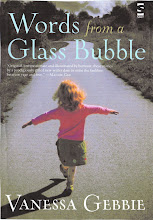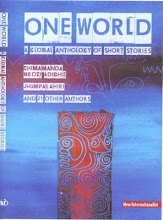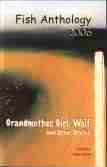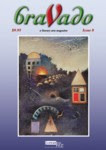It is an interesting conundrum… Do we want to be reviewed by readers or writers? In other words, which would we rather be, a reader’s writer or a writer’s writer?
Kay Sexton writes in response to this point made in a recent comment on her blog (link to the right):
We all want readers, and so when we review we should be asking a series of simple questions: was this worth reading - why or why not? was it enjoyable reading - why or why not? That’s what helps both the writer and a potential reader understand how the book works on the most important level – readability. Only then should we move on to the literary questions of voice, themes etc.
My initial reaction was that there is an element of truth in this… but on reflection, I think it is far too simplistic.
‘Was it enjoyable reading’ can only be answered from the standpoint of the single reviewer/reader. And if that is a reader who does not skim for plot excitement, actively seeks out well crafted work, layers of meaning, challenging stuff, interesting use of language, insights into life seen through the prism of another human being’s lens… then ‘readability’ itself takes on a more complex meaning.
‘Readability’ without 'literary questions' presupposes no effort. Easy riding. Those texts with the lowest reading age requirement. Beach yarns. Great fun. Fill a gap on holiday, and you leave them behind, eminently forgettable.
I’d like to think there’s more to reading for some. Am I a snob? Not at all. People can read and eat exactly what they what they want to. but crucially, being just 'readable' doesn’t make something ‘good’. And if I’m reviewing, I bring to the equation my own values of what ‘good’ is. As someone did with my work, found it badly wanting… and I'll use that as a spur to write stronger and better, in the end, not weaker.
Would I like to be a reader’s writer or a writer’s writer?
Both. In an ideal world, I’d like to be read for enjoyment and to have the respect of good writers.
Monday, 19 May 2008
Subscribe to:
Post Comments (Atom)




.JPG)























2 comments:
It does make a difference whether the reviewers are writers or not, I have found while working with the thirty or so reviewers who review for The Short Review. They have many compunctions about negative reviews, they put themselves in the writer's shoes, they know how that would feel. Does this lead a reviewer to praise more? To be more analytical?
I don't require that my reviewers be writers, but I will shortly be publishing a review of a short story collection by someone who never reads short stories let alone writes them. It was a risk - this reviewer liked the writer's longer works, and found that they just weren't satisfied with the shorter works. Is this purely a length issue? Can we measure if this is a "valid" response? Is this really about the books "readability"? I don't think it is possible to answer these questions, to separate one from the other, to set a checklist for reviewing. The beauty of reviews is their utter subjectivity, to me anyway. That's why The Short Review always always gives links to other reviews of the same book.
On a personal note, I agree, V, I'd like to be reviewed positively both by writers and readers and hope they - well every single person who might read my stories - get something from them, whatever it is.
Do writers praise more?
I think I'm probably harder. I read a novel called The Memory Keeper's Daughter last week, and although it was interesting, I found myself skimming.The writing was occasionally praiseworthy, but all the characters had the same imaginative flights in their internal thoughts... so they were the writer's, not the characters'. The writer had won awards for her short fiction, but the novel didn't work on the same level, for this reader.
Reading reviews, and wanting to understand why it had become a runaway success, it appears to be the premise, and the plot. Not the work as a whole.
Post a Comment